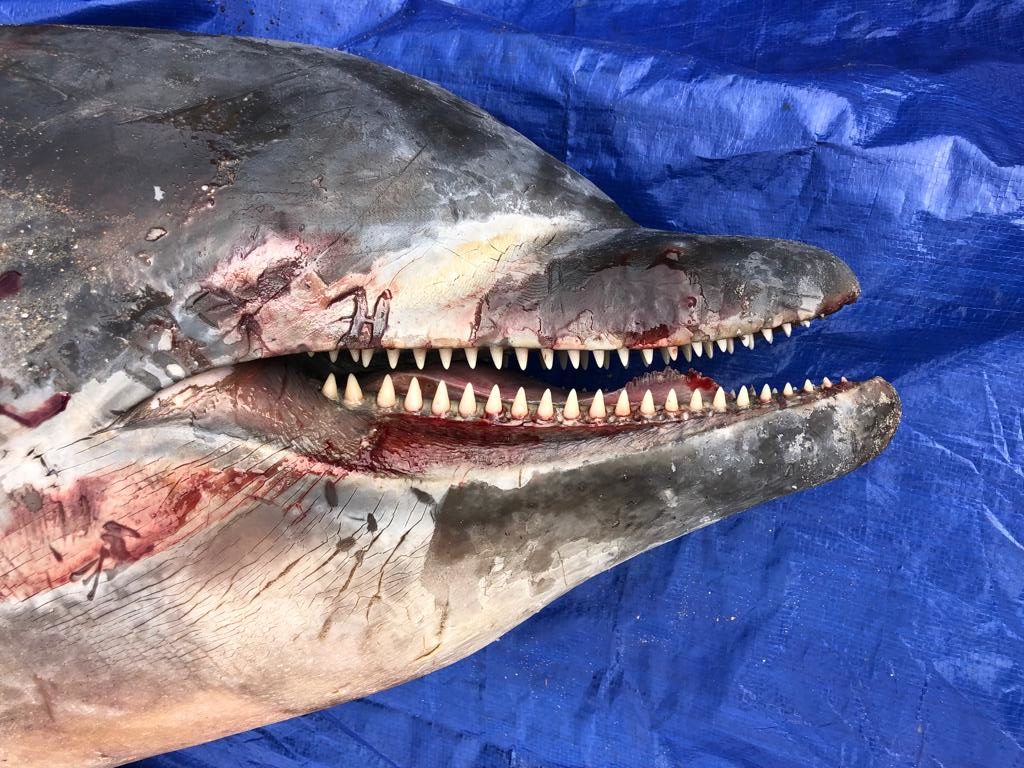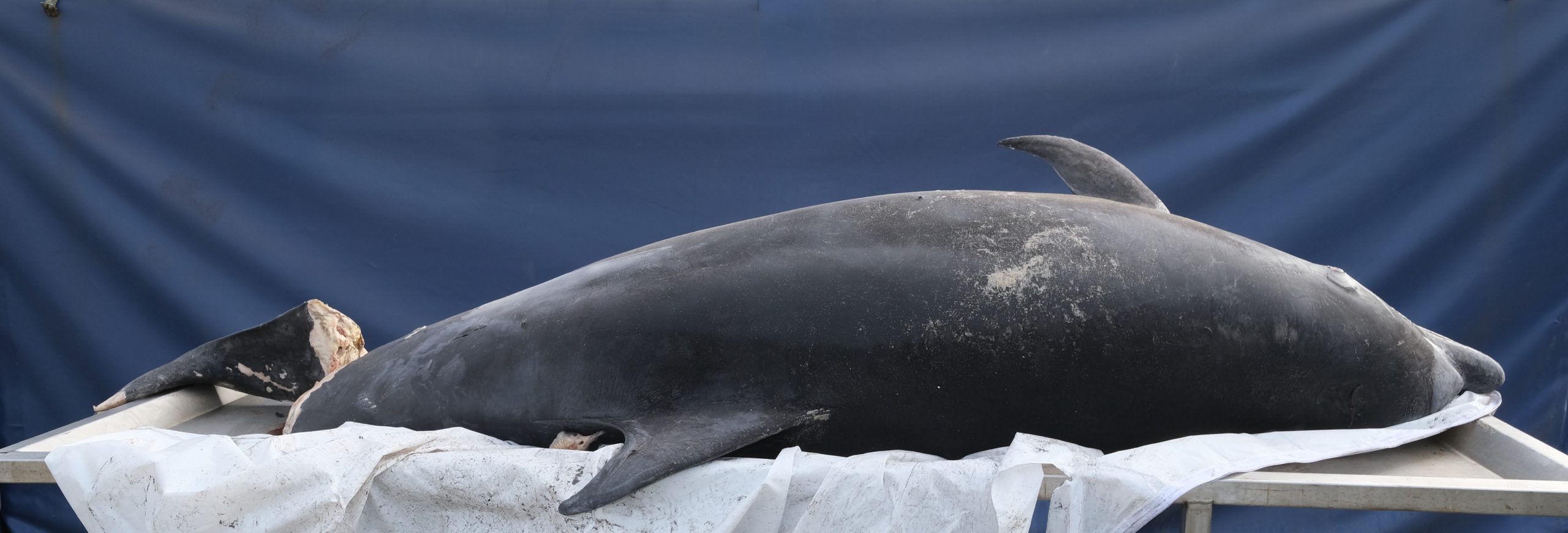Après l’observation d’une carcasse de baleine fin à la dérive dans la mer du Nord belge le vendredi 30 septembre (échouée ensuite à Westkapelle, Pays-Bas), nous avons assisté à un autre échouage exceptionnel le dimanche 2 octobre. Ce jour-là, un grand dauphin (Tursiops truncatus) s’est échoué sur la plage du Coq.

On a d’abord cru qu’il s’agissait d’un marsouin, mais ce n’est qu’après l’avoir ramassé qu’il s’est avéré qu’il s’agissait d’un grand dauphin dans un état de décomposition avancé. C’était un jeune mâle d’à peine 2,24 m de long et pesant seulement 129 kg. Les blessures à la queue suggèrent que l’animal est entré en contact avec l’hélice d’un petit navire. Cependant, l’autopsie, réalisée à la Faculté de médecine vétérinaire de l’Université de Liège, n’a pas pu confirmer si une collision était la cause du décès ou si elle a eu lieu post-mortem. La mort pourrait éventuellement être liée à un processus de famine, mais l’état de décomposition du cadavre a empêché une enquête plus approfondie.


Il ne semble pas s’agir du grand dauphin que l’on voit régulièrement dans la partie occidentale des eaux belges et qui y recherche activement la présence humaine. Le grand dauphin est originaire du sud de la mer du Nord, mais il y est très rare depuis les années 1960. Depuis 1995, seuls deux autres échouages de grands dauphins sont connus en Belgique, en 2016 et 2017.
Vous trouverez plus d’informations sur l’occurrence des grands dauphins en mer du Nord et en Belgique dans cet article.



